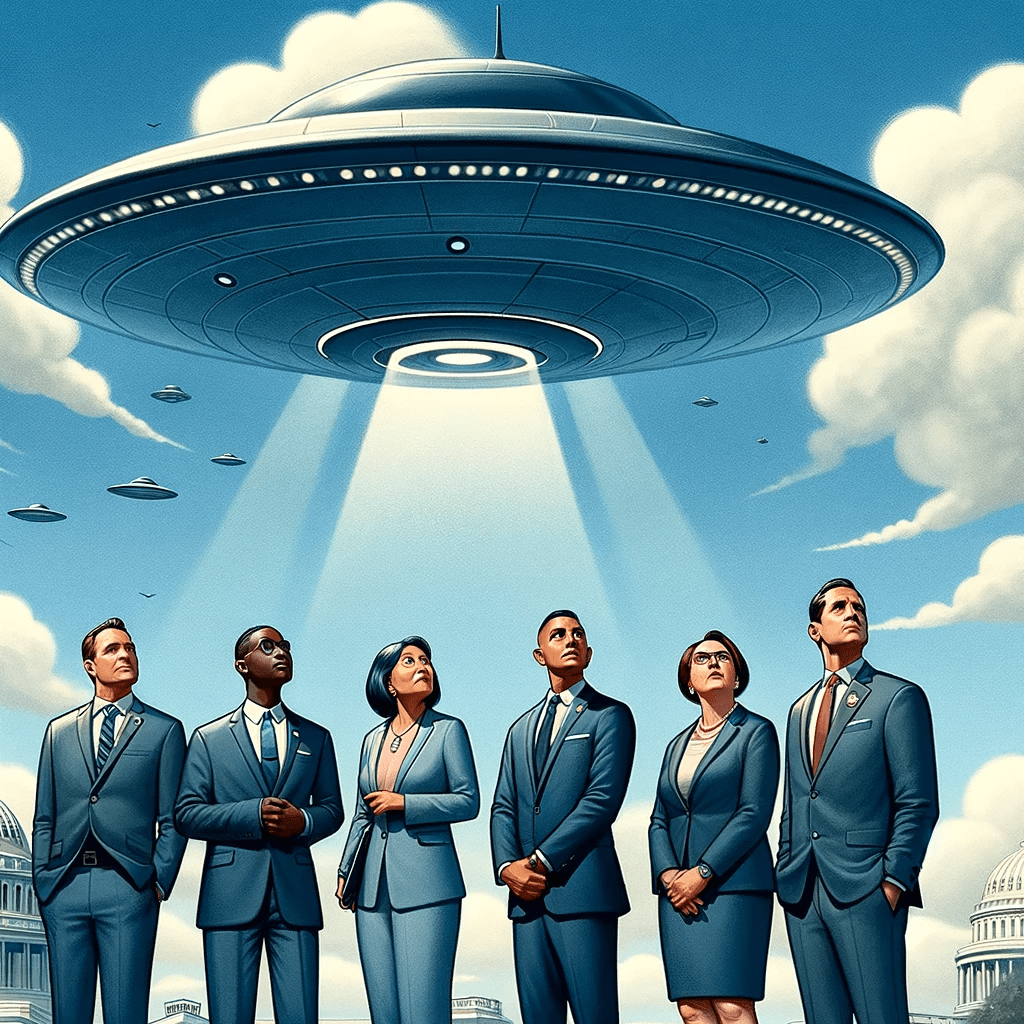House Representatives Demand Greater Transparency from the Department of Defense in Handling Unidentified Aerial Phenomena

On November 30, 2023, Rep. Anna Paulina Luna (R-Fla.) made a significant announcement concerning the U.S.’s transparency, or lack thereof, regarding unidentified aerial phenomena (UAP). In a bid to bring this issue to the forefront, Luna disclosed her plans to host a bipartisan press conference. This event, scheduled for Thursday at 12:30 p.m., aimed to highlight the U.S. government’s alleged obfuscation of facts and denial of access to information about UAPs to the American citizens.
Joining Luna in this endeavor were Reps. Tim Burchett (R-Tenn.), Matt Gaetz (R-Fla.), and Jared Moskowitz (D-Fla.). Their collective voices echoed a shared concern: the longstanding history of the U.S., dating back to 1947, in suppressing information related to UAPs. Burchett, in particular, pointed out the significant pushback from the intelligence community, Congress, and the Pentagon against efforts to improve transparency in this area.
The conversation touched upon the rejection of an amendment in the FAA reauthorization Bill, proposed by Burchett. This amendment sought to mandate the Federal Aviation Administration to report UAP sightings by commercial pilots to Congress. However, it was reportedly quashed by the intelligence community, raising questions about the underlying reasons for such a decision.
The press conference also highlighted an amendment introduced in this year’s National Defense Authorization Act (NDAA), designed to enhance transparency about UAPs. It required the Department of Defense to declassify documents and records related to publicly known UAP or UFO sightings, provided they did not compromise national security.
The speakers emphasized the need for transparency and the right of the American people to be informed about these phenomena. They expressed frustration over the excessive classification of information, which, in many cases, does not pose a national security threat.
The discussion also looked into the obstacles faced by members of Congress in accessing information about UAPs. It was mentioned that despite being representatives of the people and sitting on key committees like Judiciary, Armed Services, and Oversight, they were being denied access to pertinent information.
Luna and her colleagues highlighted the problem of overclassification and the urgent need for the UAP Disclosure Act. They stressed that the American people deserve to know about the existence of UAPs, particularly concerning their safety and defense.
The conference concluded with a strong call for greater cooperation among various government agencies and a plea for Congress to be fully informed about these mysterious aerial phenomena. The overarching theme was the necessity for transparency and accountability in the government’s dealings with UAPs, ensuring that the truth is no longer barred from the public.
At the end of the conference, there was a Q&A session where various topics related to the unidentified aerial phenomena (UAP) were discussed. Here’s a summary of the key questions and answers:
- Progress Towards Transparency: When asked about progress in achieving transparency, the response was that there had been little to no progress. The UAP Disclosure Act was mentioned, with emphasis on the need for more straightforward transparency.
- Viewing Classified Documents or Videos: Some representatives acknowledged having seen classified materials related to UAPs, expressing confusion about why such information remains classified if it doesn’t threaten national security.
- Existence of Extraterrestrial Life: In response to whether they had seen anything to suggest extraterrestrial life, one representative hesitated to make that leap but noted that certain images they had seen did not resemble anything within known U.S. or adversary capabilities.
- Pushback from Intelligence Committees: It was noted that the House Intelligence Committee and the Senate Armed Services Committee had shown significant resistance to efforts for transparency, often citing broad national security concerns without specific reasons.
- China and Other Nations: When asked about the focus on China and whether other nations like Russia could be involved, the response highlighted increased activities in Cuba by China and a general concern about foreign technological capabilities.
- Specific Amendments and Legislation: Questions about specific amendments and legislation related to UAP transparency were discussed. The need for simplicity and clarity in such legislation was emphasized.
- Encounters with UAPs Near Military Installations: The representatives spoke about UAPs being sighted near military installations and nuclear facilities, raising concerns about national security and the need for accountability.
- Resistance to Transparency: The ongoing resistance to transparency from various government quarters was highlighted, along with the urgency for accountability and the public’s right to know.
As for next steps, the representatives highlighted the importance of continuing to push for amendments like the UAP Disclosure Act, ensuring these issues are addressed in the National Defense Authorization Act (NDAA). They emphasized the need for continued advocacy, both within Congress and in public forums, to maintain pressure on government agencies for greater transparency and accountability. The engagement of other members of Congress and potentially broader public awareness were seen as vital in advancing this cause.


